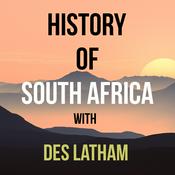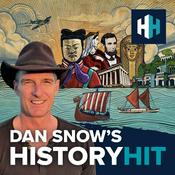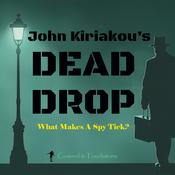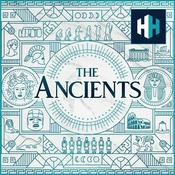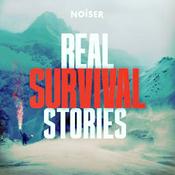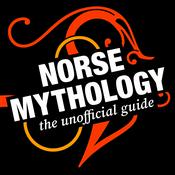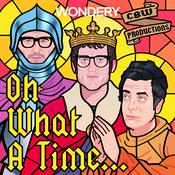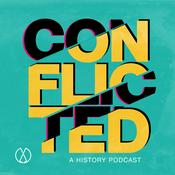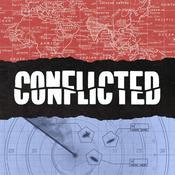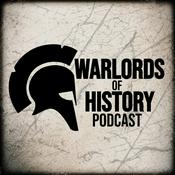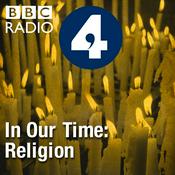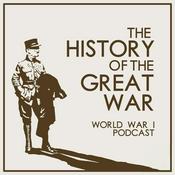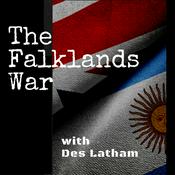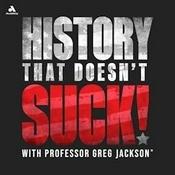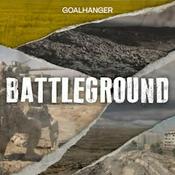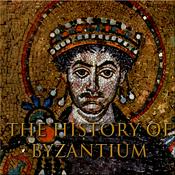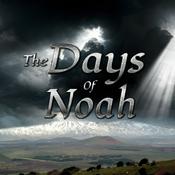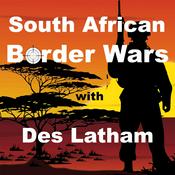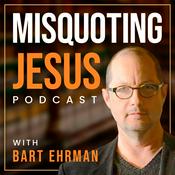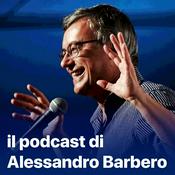History 102 with WhatifAltHist's Rudyard Lynch and Austin Padgett
Turpentine
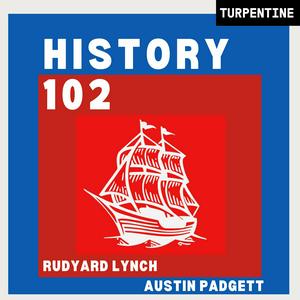
Latest episode
82 episodes
- In this episode of History 102, 'WhatIfAltHist' creator Rudyard Lynch and co-host Austin Padgett discuss medieval Islam's decline from the Abbasid collapse through Mongol invasions, exploring the intellectual shift from cosmopolitan rationalism to religious orthodoxy and the rise of Turkic military states.
--
FOLLOW ON X:
@whatifalthist (Rudyard)
@LudwigNverMises (Austin)
@TurpentineMedia
--
TIMESTAMPS:
(00:00) Intro
(14:04) Early Islamic Tolerance & Arab Demographic Strategy
(24:17) [SPONSOR BREAK]
(26:36) The Abbasid Caliphate & Dar al-Islam
(37:02) The Islamic Golden Age: Wealth & Intellectual Achievement
(52:02) The Fall of the Abbasid Caliphate
(1:06:57) Al-Ghazali's Intellectual Counter-Revolution
(1:27:13) The Mystic Period: Sufism & Rumi
(1:40:19) Umayyad Spain & The Mediterranean Shifts Christian
(1:55:25) Seljuk Turks & The Battle of Manzikert
(2:01:35) Muslim Conquest of India & The Mamluk Problem
(2:10:48) Ibn Khaldun & The 120-Year Dynasty Cycle
(2:26:09) Mongol & Tamerlane Devastation
(2:32:16) The "Sensitive Warlord" Archetype & Conclusion
Learn more about your ad choices. Visit megaphone.fm/adchoices - In this episode of History 102, 'WhatIfAltHist' creator Rudyard Lynch and co-host Austin Padgett examine Soviet communism from czarist origins through Stalin's totalitarian brutality to collapse and explore how Marxist ideology created history's most psychologically destructive regime.
--
SPONSOR: SHOPIFY
Shopify powers millions of businesses worldwide, handling 10% of U.S. e-commerce. With hundreds of templates, AI tools for product descriptions, and seamless marketing campaign creation, it's like having a design studio and marketing team in one. Start your $1/month trial today at https://shopify.com/cognitive
--
FOLLOW ON X:
@whatifalthist (Rudyard)
@LudwigNverMises (Austin)
@TurpentineMedia
--
TIMESTAMPS:
(00:00:00) Introduction
(00:03:38) French Thinkers on Russia & America
(00:15:52) Sponsor: Shopify
(00:21:00) Czarist Russia - Nobility & Serfdom
(00:26:37) Underground Revolutionary Networks
(00:33:00) World War I - Russia's Breaking Point
(00:44:00) The Russian Revolutions of 1917
(00:47:24) Lenin Seizes Power
(00:51:00) Russian Civil War
(01:09:00) Stalin vs Trotsky
(01:11:38) Stalin's Rise to Power
(01:26:09) Stalin's Economic Plans & Brutal Conditions
(01:52:33) Stalin's Mass Purges & Genocides
(01:54:09) Holodomor - Ukrainian Famine
(02:01:36) The Gulag System
(02:08:09) World War II - Eastern Front
(02:14:12) Post-War Soviet Empire & Iron Curtain
(02:20:27) The Cold War
(02:30:00) Gorbachev & The Collapse (1989-1991)
(02:38:00) Closing
Learn more about your ad choices. Visit megaphone.fm/adchoices - In this episode of History 102, 'WhatIfAltHist' creator Rudyard Lynch and co-host Austin Padgett examine Britain's arc from Tudor origins through imperial dominance to modern decline, analyzing how internal unification of the British Isles catalyzed global expansion.
--
SPONSOR: SHOPIFY
Shopify powers millions of businesses worldwide, handling 10% of U.S. e-commerce. With hundreds of templates, AI tools for product descriptions, and seamless marketing campaign creation, it's like having a design studio and marketing team in one. Start your $1/month trial today at https://shopify.com/cognitive
--
FOLLOW ON X:
@whatifalthist (Rudyard)
@LudwigNverMises (Austin)
@TurpentineMedia
--
TIMESTAMPS:
Learn more about your ad choices. Visit megaphone.fm/adchoices - In this episode of History 102, 'WhatIfAltHist' creator Rudyard Lynch and co-host Austin Padgett analyze romantic era Europe's dueling philosophical currents—romanticism versus utilitarianism—through the Congress of Vienna, industrial capitalism, and the political tensions preceding World War I.
--
SPONSOR: SHOPIFY
Shopify powers millions of businesses worldwide, handling 10% of U.S. e-commerce. With hundreds of templates, AI tools for product descriptions, and seamless marketing campaign creation, it's like having a design studio and marketing team in one. Start your $1/month trial today at https://shopify.com/cognitive
--
FOLLOW ON X:
@whatifalthist (Rudyard)
@LudwigNverMises (Austin)
@TurpentineMedia
--
TIMESTAMPS:
(00:00) Intro
(03:19) Romanticism vs. Utilitarianism: Europe's Two Philosophical Currents
(07:00) The Congress of Vienna (1815) and Conservative Reactionary Victory
(10:24) France's Post-Revolutionary Political Crises and Instability (1815-1871)
(15:33) Sponsor: Metaview
(17:29) Europe's Paradox: Social Degradation vs. Technological Progress
(27:00) Britain's Industrial Revolution and Economic Policy Decisions
(35:22) The Corn Laws: Free Trade vs. Agricultural Protectionism
(40:00) Eastern Europe: Serfdom, Counter-Enlightenment, and the Holy League
(43:34) Continental Philosophy: Rousseau and the Birth of Romanticism
(55:00) Romantic Thinkers: Saint-Simon, Hegel, and Marx
(1:20:00) The Conservative Order's Decline and European Modernization
(1:37:00) The 1848 Revolutions and Population Crisis
(1:48:00) Bismarck and German Unification
(2:00:00) The Rise of the Managerial State and Industrial Militaries
(2:07:00) The Balkans, Entangling Alliances, and the Path to World War I
(2:12:14) States' Rights and Regional vs. Continental Conflict
(2:14:18) Wrap
Learn more about your ad choices. Visit megaphone.fm/adchoices - In this episode of History 102, 'WhatIfAltHist' creator Rudyard Lynch sits down with Ryan Petersen, Flexport CEO to examine how commerce shaped civilizations—from ancient maritime networks through containerization's revolution. They trace currency systems' societal impacts, exponential post-war growth, and how technological shifts from coins to the internet have transformed social organization.
--
SPONSOR: SHOPIFY
Shopify powers millions of businesses worldwide, handling 10% of U.S. e-commerce. With hundreds of templates, AI tools for product descriptions, and seamless marketing campaign creation, it's like having a design studio and marketing team in one. Start your $1/month trial today at https://shopify.com/cognitive
--
FOLLOW ON X:
@whatifalthist (Rudyard)
@LudwigNverMises (Austin)
@TurpentineMedia
--
TIMESTAMPS:
(00:00) Introduction & The Shipping Container Revolution
(06:12) Comparing Pre-Modern vs. Modern Economies & Ancient Trade Networks
(16:08) The European Age of Exploration & Shifting Economic Centers
(18:51) Sponsor: Metaview
(27:00) Italian Banking & Financing European Expansion
(31:12) Technological & Biological Innovations Enabling Trade
(43:32) Geography, Property Rights & Rule of Law
(54:20) Free Trade vs. Protectionism Throughout History
(1:00:42) Austrian vs. Keynesian Economics & Modern Distortions
(1:08:28) Currency Collapse: Historical Parallels from Rome to Spain
(1:11:41) Society vs. Power & Medieval Decentralization
(1:16:45) The Axial Age & How Currency Transforms Society
(1:20:20) The Internet, Technology & The Future of Social Organization
Learn more about your ad choices. Visit megaphone.fm/adchoices
More History podcasts
Trending History podcasts
About History 102 with WhatifAltHist's Rudyard Lynch and Austin Padgett
Rudyard Lynch, creator of the enormously popular YouTube channel WhatifAltHist joins Austin Padgett every week to offer a deeper understanding of critical moments in history. Together they identify patterns in order to predict the future and understand the dynamics that result in civilizations rising and falling.
We cover WW1, WW2, Classical Greece, Medieval Islam, the rise of Communism, and more.
History 102 is a part of the Turpentine podcast network. Learn more: www.turpentine.co
Podcast websiteListen to History 102 with WhatifAltHist's Rudyard Lynch and Austin Padgett, British Scandal and many other podcasts from around the world with the radio.net app

Get the free radio.net app
- Stations and podcasts to bookmark
- Stream via Wi-Fi or Bluetooth
- Supports Carplay & Android Auto
- Many other app features
Get the free radio.net app
- Stations and podcasts to bookmark
- Stream via Wi-Fi or Bluetooth
- Supports Carplay & Android Auto
- Many other app features


History 102 with WhatifAltHist's Rudyard Lynch and Austin Padgett
Scan code,
download the app,
start listening.
download the app,
start listening.



